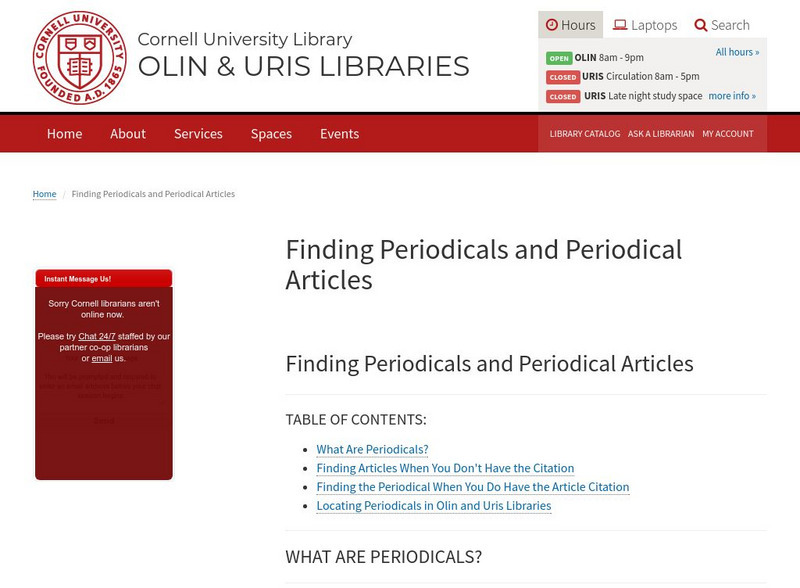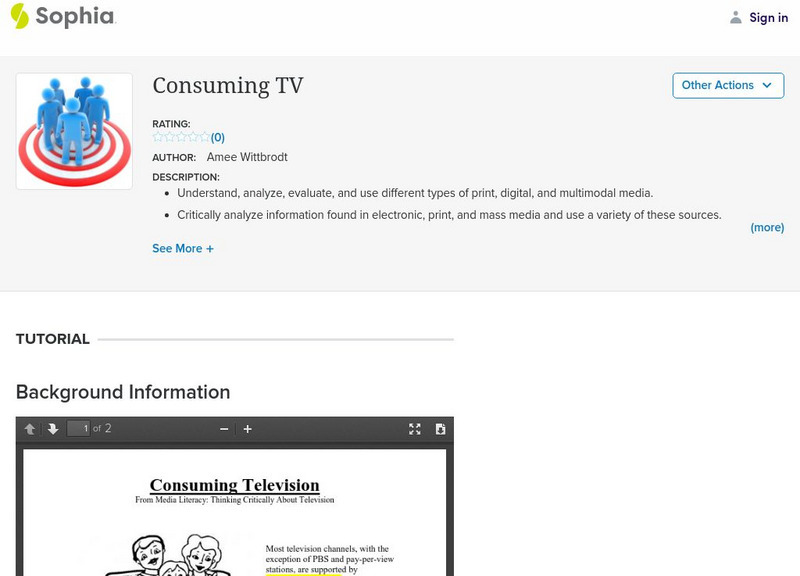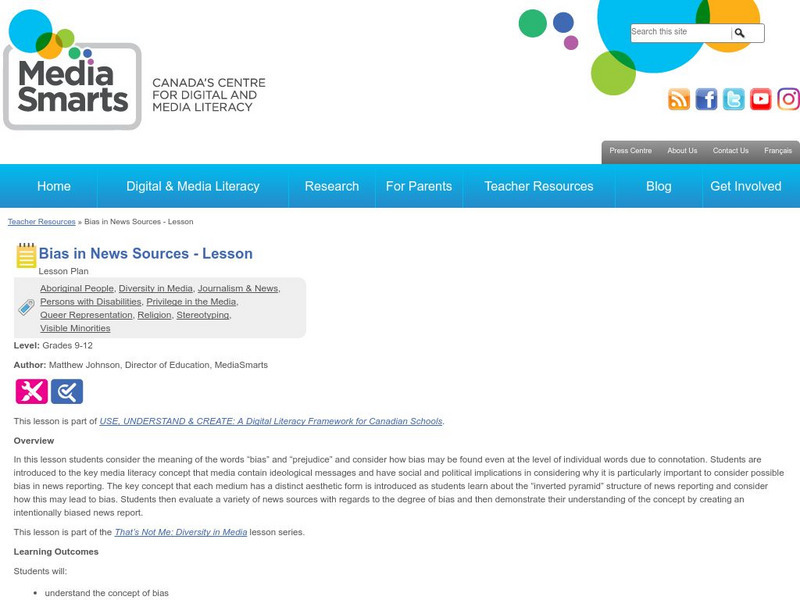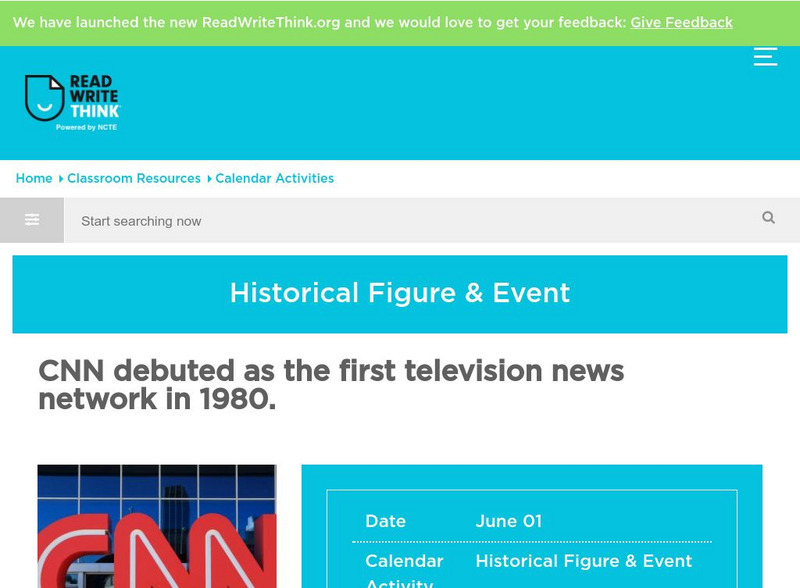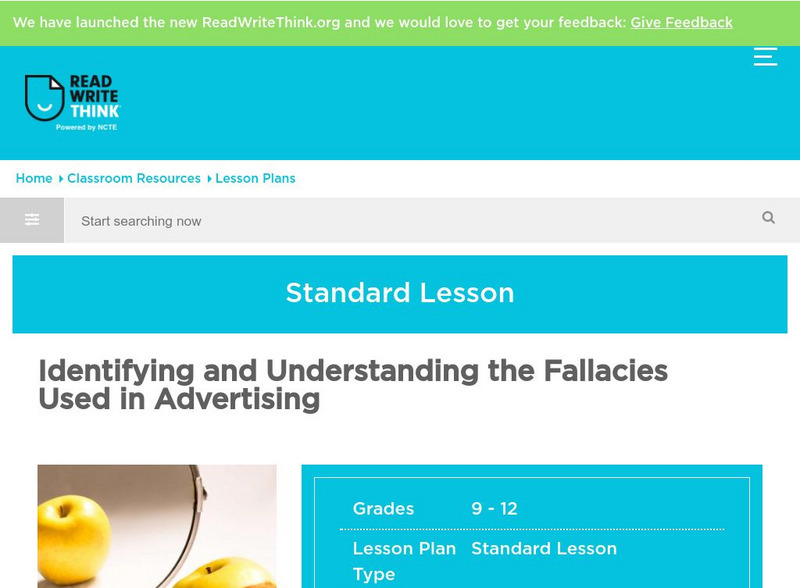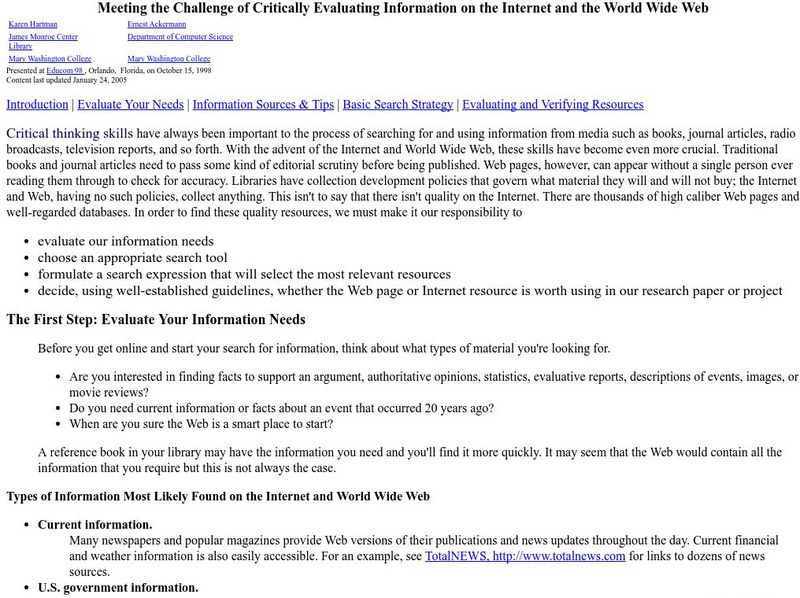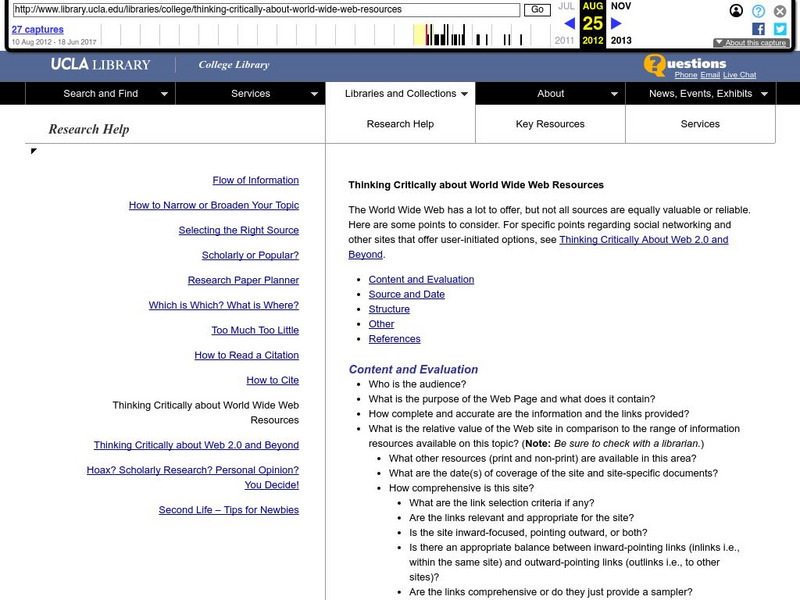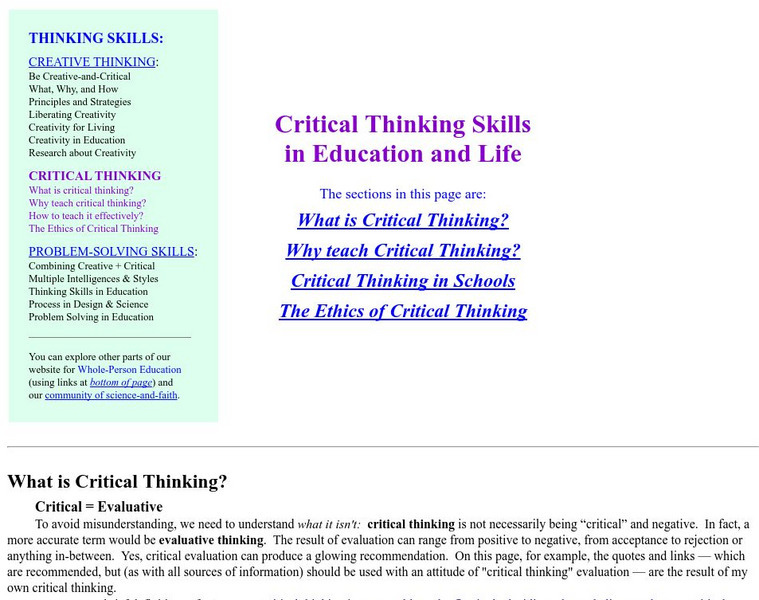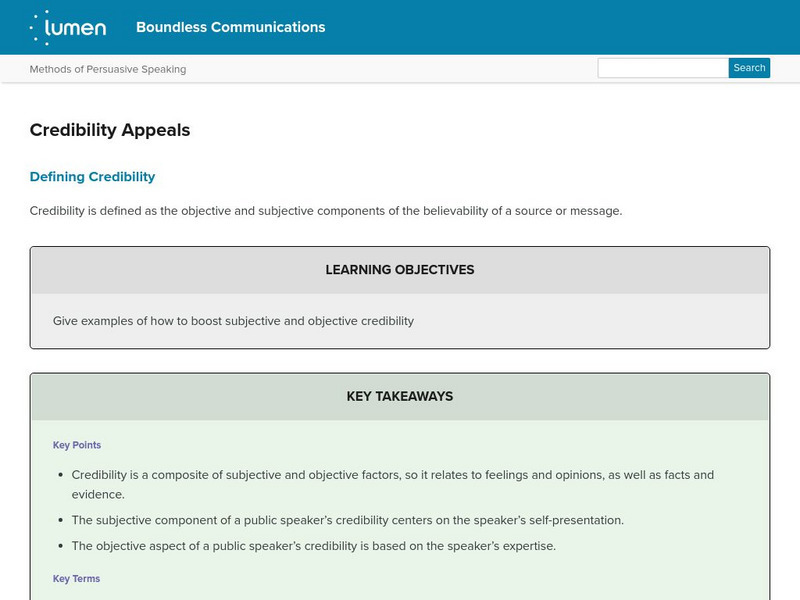Cornell University
Cornell University: Finding Periodicals and Periodical Articles
This resource offers a good look at periodicals as a source of information, and offers help for finding articles in a variety of situations.
Sophia Learning
Sophia: Consuming Tv
In this tutorial, students will read about the viewing of television in American households through the reading of a passage and the viewing of a video segment. Students will then engage in answering basic comprehension questions,...
Sophia Learning
Sophia: How to Choose Credible Sources
This tutorial focuses on choosing credible sources for a research project. It offers two versions of a slideshow: a non-audio slideshow and an audio slideshow which explains the information as it is shown. They each define terms, offer...
Sophia Learning
Sophia: Judging and Reacting: Tutorial
In this slideshow tutorial, students will review the critical reading techniques of making judgments and forming reactions about what they read. Explanations are given about drawing conclusions, responding to literature, and making...
Sophia Learning
Sophia: Note Taking: Word Selection
A screencast lesson [8:35] explaining how to determine which information is necessary and relevant when taking notes.
Sophia Learning
Sophia: Bias
Notes introducing bias and demonstrating how to identify slight, moderate, and strong bias in a text. Notes can be both read and listened to.
Other
Critical Thinking: Basic Questions & Answers
An interesting interview with Richard Paul discussing what critical thinking means. There are many insights as to what critical thinking involves and how it should be used in the classroom.
BBC
Bbc: Skillswise: Listening for Specifics
This Skillswise site focuses on listening for specifics. Included are a video about why learning how to do this, fact sheets and worksheets for instruction, quizzes on the information presented, and games to practice the skill. The...
Other
Becoming a Critic of Your Thinking
This resource presents an article that explains why it is important to be someone who is a good thinker. Provided are four strategies for critical thinking.
Media Smarts
The Media Awareness Network: Bias
Slant, or bias, can be found in virtually every news outlet. Use this online lesson plan to help students understand how word choices and other factors can intentionally or unintentionally affect the audience's understanding.
Other
Society of Professional Journalists: Freedom of Info.
This resource is a great tool for journalists and non-journalists to obtain information from federal and local government sources. Access to this information can make or break a news story.
Cornell University
Cornell University: Library: Critically Analyzing Information Sources
A quick guide to help you determine the relevance and authority of a resource.
George Mason University
Gmu: Virginia Montecino: Criteria to Evaluate the Credibility of Www Resources
An easy-to-follow guide to assist in determining whether online resources are reliable and true. Find questions to ask while reviewing sources. CCSS.ELA-Literacy.CCRA.W.8 and CCSS.ELA-Literacy.CCRA.R.9
ReadWriteThink
Read Write Think: Cnn Debuted as the First Television News Network in 1980
These lesson plans relate to the gathering and production of news and creating a visual timeline. There are links to other lesson plan ideas, as well as web links, and a brief bibliography. SL.11-12.2 Eval&Integrate sources
ReadWriteThink
Read Write Think: Identifying and Understanding the Fallacies Used in Advertising
Students examine the fallacies that surround them every day, deconstruct fallacious images and messages in advertisements, and demonstrate their understanding of the fallacies through multimedia presentations.
Other
Media Education Foundation: Deconstructing a Video Advertisement [Pdf]
Handout that leads students through an exploration of the visual and audio elements of a video advertisement as well as the effect these elements have on the intended audience and the community as a whole.
21st Century Schools
21st Century Schools: Critical Viewing Skills and Media Literacy
Understand media literacy as it relates to a student's ability to analyze, evaluate, critique and produce multiple media messages. Information and links to inspire students, teachers and all those who work with young people regarding...
Other
Webliminal: Critically Evaluating Information on the Internet
This site gives excellent information on why it's important to evaluate the content of everything you find in cyberspace, and also tells you how to do so. It also contains information about using search engines effectively and how to...
The Write Place
Literacy Education Online: Assessing the Credibility of Online Sources
This site from the St. Cloud State University provides information on online sources. This article explains how to assess the value of online sources based on authorship, publisher, date of publication, depth of material, and...
University of California
Ucla College Library: Thinking Critically About World Wide Web Resources
This site teaches readers how to evaluate the content and quality of web resources, offering questions and checklists to consider.
Other
Asa Education: Critical Thinking Skills in Education and Life
There are many links and resources on this site dealing with critical thinking. It includes everything from the characteristics of critical thinkers to the logic of critical thinking.
Other
Monash University Library: Evaluating What You Find
This site explains how to evaluate the information you find in your research and provides practice exercises. It includes three sections: Evaluating the reliability of sources, Academic research on the internet, and Evaluating academic...
Other
Media Activist's Kit for Fairness in Reporting
This site offers the whole package about bias in reporting: what it is, how to identify the source, how to complain about it and be heard, and what to do if all else fails. The site offers an extensive reading list along with detailed...
Lumen Learning
Lumen: Boundless Communications: Credibility Appeals
This lesson focuses on using credible appeals in persuasive speeches including defining subjective and objective credibility, the types and elements of credibility, and the ethical use of credibility appeals. CCSS.ELA-Literacy.CCRA.W.8


